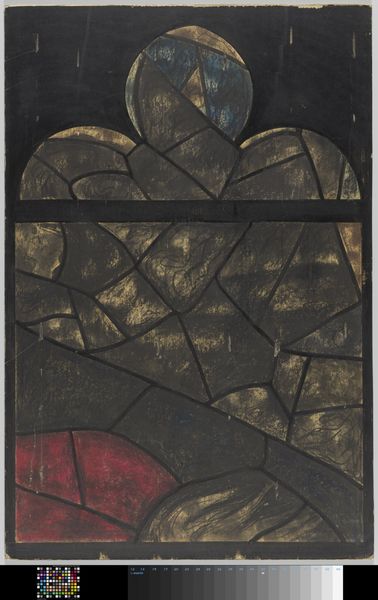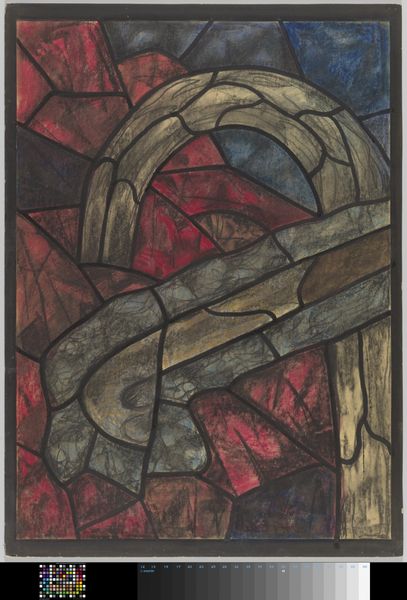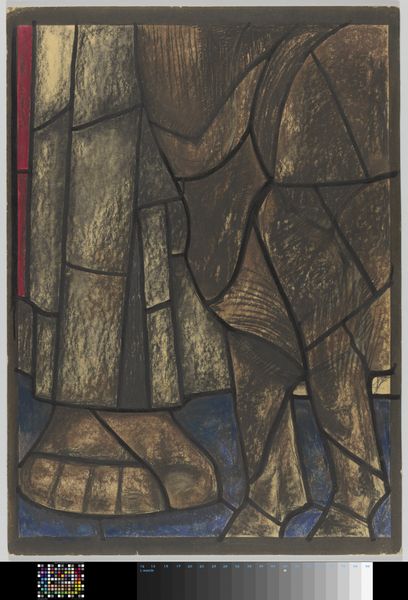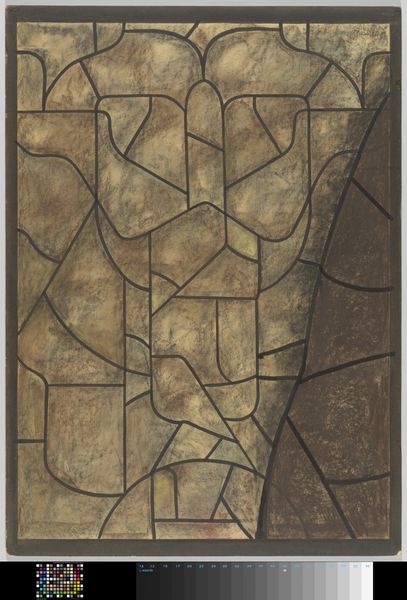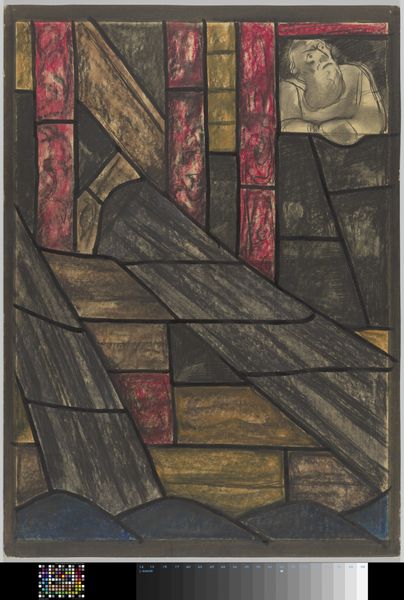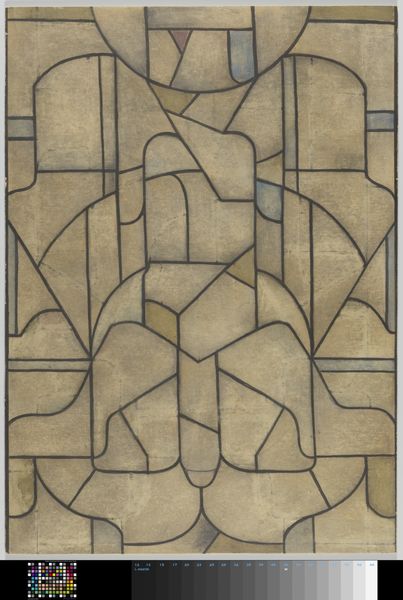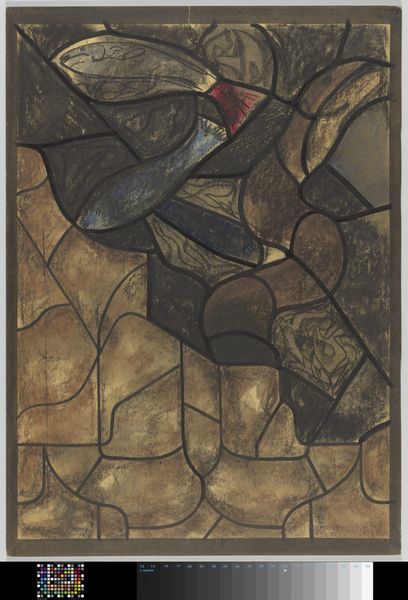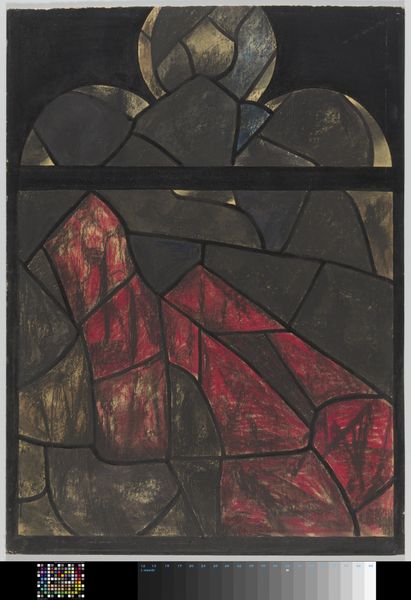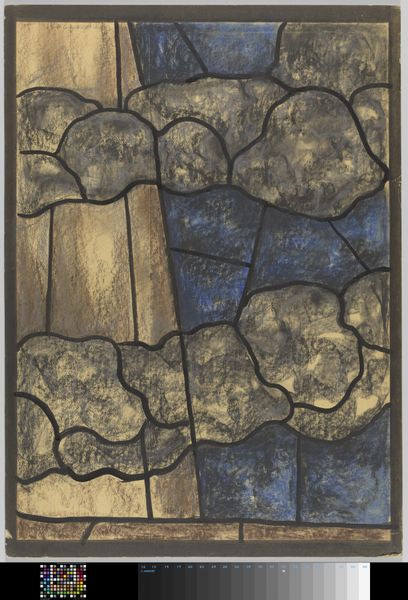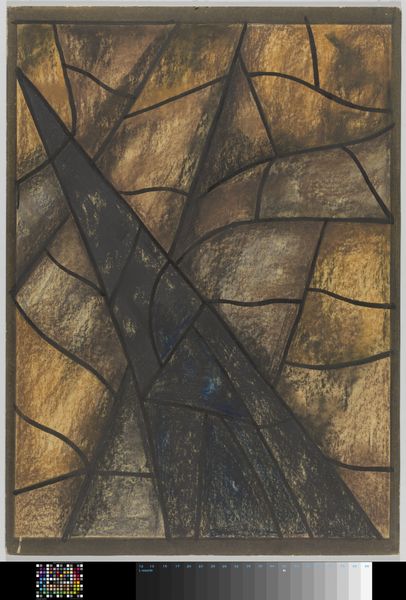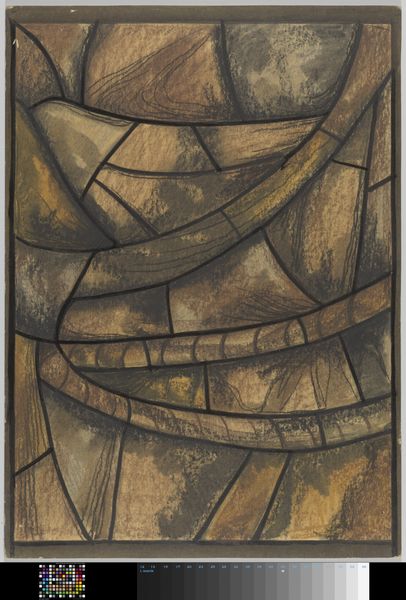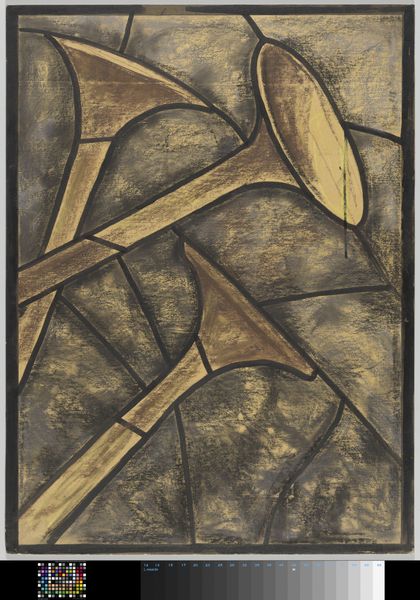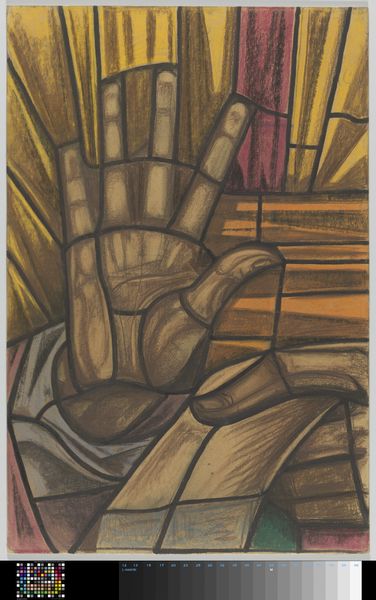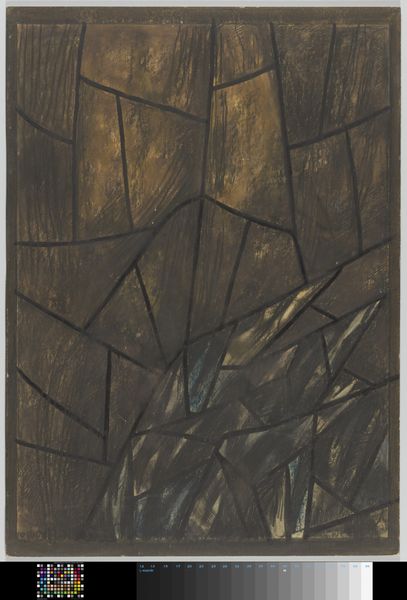
Ontwerp voor raam in het Noordertransept in de Dom te Utrecht c. 1934
0:00
0:00
richardnicolausrolandholst
Rijksmuseum
drawing, paper, pencil
#
drawing
#
figuration
#
paper
#
geometric
#
pencil
#
modernism
Dimensions: height 1089 mm, width 812 mm
Copyright: Rijks Museum: Open Domain
Richard Nicolaüs Roland Holst made this design for a window in the Utrecht Cathedral, and it's all about the surface. The medium looks like gouache or tempera, something matte and chalky, applied in layers. The hand is dominant. Each finger stretches upwards, encased by the black lines that divide the stained glass. Look at how the colour is darker at the palm. Holst wants you to imagine the hand pushing against the glass, pressing forward. The surface is built up, but scrubbed back, giving it an active, almost anxious energy. You see echoes of symbolism here, perhaps like Gustav Klimt. Holst is playing with the idea that a window isn't just a window, but a surface to project our hopes, fears, and maybe even our faith onto. The image resonates with ambiguity, and that is where its power lies.
Comments
No comments
Be the first to comment and join the conversation on the ultimate creative platform.
